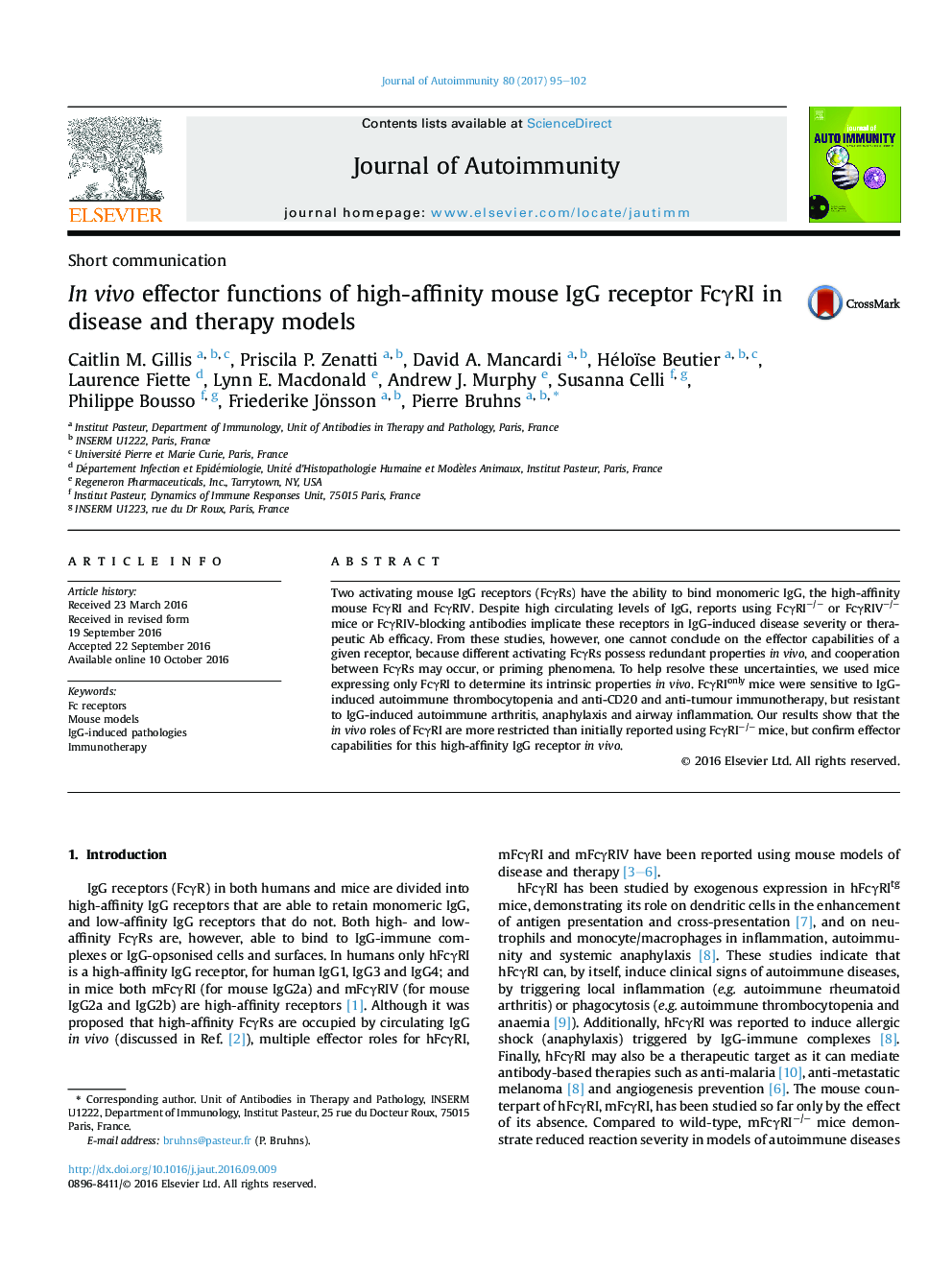| Article ID | Journal | Published Year | Pages | File Type |
|---|---|---|---|---|
| 5667834 | Journal of Autoimmunity | 2017 | 8 Pages |
â¢Autoimmune thrombocytopenia can be induced via mFcγRI alone.â¢Splenectomy or hemi-hepatectomy did not affect mFcγRI-dependent thrombocytopenia.â¢In disease models, mFcγRI does not mediate arthritis, alveolitis or anaphylaxis.â¢mFcγRI can mediate antibody immunotherapy targeting B cells or subcutaneous tumours.â¢mFcγRIonly mice elucidate independent effector functions for this receptor in vivo.
Two activating mouse IgG receptors (FcγRs) have the ability to bind monomeric IgG, the high-affinity mouse FcγRI and FcγRIV. Despite high circulating levels of IgG, reports using FcγRIâ/â or FcγRIVâ/â mice or FcγRIV-blocking antibodies implicate these receptors in IgG-induced disease severity or therapeutic Ab efficacy. From these studies, however, one cannot conclude on the effector capabilities of a given receptor, because different activating FcγRs possess redundant properties in vivo, and cooperation between FcγRs may occur, or priming phenomena. To help resolve these uncertainties, we used mice expressing only FcγRI to determine its intrinsic properties in vivo. FcγRIonly mice were sensitive to IgG-induced autoimmune thrombocytopenia and anti-CD20 and anti-tumour immunotherapy, but resistant to IgG-induced autoimmune arthritis, anaphylaxis and airway inflammation. Our results show that the in vivo roles of FcγRI are more restricted than initially reported using FcγRIâ/â mice, but confirm effector capabilities for this high-affinity IgG receptor in vivo.
